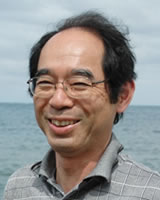Development of Technique and Theory for Comprehensive Re-generation of Local Commons

This project focuses on the problem of the “Local commons” to connect the local issues and global environmental issues such as biodiversity conservation and global-warming. There is, in the background of discussion about local commons, a limit of logic of government-driven management for sustainable environment. The traditional governmental management method of natural environment and natural resources didn’t consider for practices of local residents and self‐government‐rule in local community. In this background, discussion of commons had been deepened regarding to issues about who and how manages the local natural environment.
“Local commons” means not only a space which has been co-managed such as rice fields, forests, coasts, lakes, rivers, and ecosystem including natural resources, but also traditional social system and culture to manage the community and natural resource sustainably. In other words, “Re-generation commons” is to restore the natural environment and to achieve the revitalization of the community which maintain and use the natural space and resource appropriately. A significant issue for re-generation commons is not only to develop engineering technology of CO2 reduction and nature restoration, but also to construct social techniques concerning consensus building and project management to achieve that local residents engage themselves in nature restoration process and management of natural resource. Furthermore, a new philosophy of community management to overcome the problem of modern governmental system must be proposed. With respect to such issues, this project aims to build a theory and technique for comprehensive re-generation of commons through activities in Sado Island, Niigata Prefecture as a main field.
Project Participant
- (Industry)Kamo-ko Fisheries Cooperative
- (Governmental agencies)Sado City、Niigata Prefecture Sado Regional Promotion Bureau、Sado Ranger Office for Nature Conservation (Ministry of Environment)、Toyooka City, etc.
- (Academics)Tokyo Institute of Technology, Kyushu University, University of Hyogo
- (Public)Lake Kamo Water System Restoration Research Laboratory





